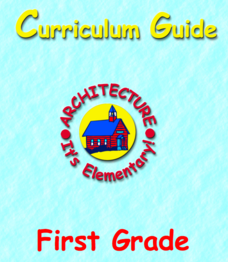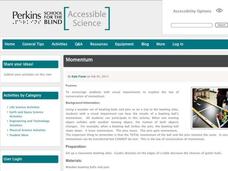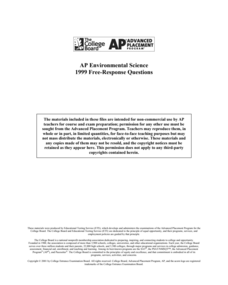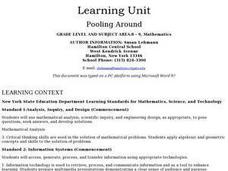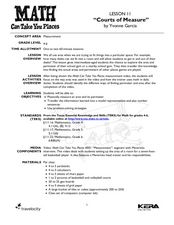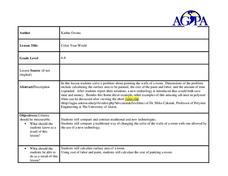American Institute of Architects
Architecture: It's Elementary!—First Grade
Build an interest and appreciation for architecture in your young learners with this fun 10-lesson art unit. Engaging children in using their five senses, the class first observes the environment around them, paying special attention to...
Perkins School for the Blind
Momentum
The laws of momentum can lead to fun! Learners with visual impairments use bowling pins and a bowling ball to model the law of conservation of momentum. They take turns bowling with differing degrees of force to explore how energy is...
Library of Congress
Investigating the Building Blocks of Our Community’s Past, Present, and Future
As Ken Jennings said, "There's just something hypnotic about maps." Certainly, the longer you look at them the more you can learn. In this project-based learning lesson, individuals study both historic and present-day maps of their area...
Polar Trec
What Can We Learn from Sediments?
Varve: a deposit of cyclical sediments that help scientists determine historical climates. Individuals analyze the topography of a region and then study varve datasets from the same area. Using this information, they determine the...
Do2Learn
T-Chart (Basic)
T-charts make a great note taking tool. Here's a template for a basic one appropriate for all learners and all subject areas.
PHET
Under Pressure
Do you work better under pressure? Pupils explore pressure when altering fluid density, gravity, container shape, and volume. Units can be converted to kPa, atm, and psi. To finish, scholars describe pressure as a function of depth,...
CK-12 Foundation
Method of Cylindrical Shells
Approximate the volume of a solid of revolution. Using a method similar to approximating the area under a curve, pupils investigate the volume of a solid of revolution. The learners use a given definite integral to find the volume of...
DiscoverE
Slinky® Science
Toys are great for learning about physics. Scholars use Slinky® toys to study Newton's laws of motion and types of energy. After a little play, they then model longitudinal and transverse waves with the Slinky® toys.
K20 LEARN
Water We Going To Do? Floodplains And Watershed Management
How has human activity affected Earth's watersheds? An action-packed lesson plan, part of the K20 Center, examines water's ability to go with the flow regardless of what is in its path. Scholars build model watersheds, examine time-lapse...
College Board
1999 AP® Environmental Science Free-Response Questions
Pollution is a real concern in most areas of Earth. A four-question AP® assessment has learners analyze data related to water pollution and air pollution as well as consider the pros and cons of recycling. Each question has several...
Smithsonian Institution
Braiding Rhythms: The Role of Bell Patterns in West African and Afro-Caribbean Music
Africans transported to the Caribbean as part of the transatlantic slave trade brought with them a rich tradition of music and dance. Four lessons teach young musicians the rumba clave rhythm, cascara rhythm, and the 6/8 bell patterns...
Exploratorium
Viral Packaging
Create a protective protein shell as a package. Using the included template, pupils tape together 20 triangles to create a 20-sided shape to represent the protective shell of a virus. The model of the protein shell incases the nucleic...
Amani Project
Harmony Break! Mood Meter Floor Board
The big idea in the fourth lesson from the Amani Project is that people can experience different emotions in precisely the same event. One participant uses their body to express an emotion. Then other participants move to the area of the...
Curated OER
Shape Matters More!
Students investigate shapes as the area changes while the perimeter remains the same. Students demonstrate the shape/perimeter/area relationship using simulations and physical models.
Curated OER
Pooling Around
Students complete a unit of lessons on computing area and volume. They play a Jeopardy game of basic area formulas, calculate surface area of shapes, develop a Powerpoint presentation, and conduct a simulation of finding the surface area...
Curated OER
Courts of Measure
Students practice their area and perimeter measurement. For this measurement lesson, students watch a video about perimeter and area. Students measure a gym for perimeter and area. Students write number sentences for the area and...
Curated OER
Bubbles Everywhere!
Eighth graders use concrete and graphic models to derive formulas for finding perimeter, area, surface area, circumference, and volume of two- and three-dimensional shapes. This lesson is a fun way to practice measurement and circle and...
Curated OER
Arrange the Classroom (Part 1 of 3)
Fifth graders arrange the classroom using all the moveable objects and through the exploration of area and perimeter. They determine the area of the classroom, create and label model pieces of furniture using graph paper, and create a...
Curated OER
Design-A-Room Project (Part 3 of 3)
Students culminate a unit on measurement with a focus on area and perimeter. They design a floor plan of their dream room on graph paper showing the proper area and perimeter. They plan the budget for their room and make a 3-D scale...
Curated OER
Color Your World
Students calculate the cost of painting a room. In this surface area lesson, students create a scale model from provided dimensions of a bedroom. Groups use area formulas to find square footage, from which materials and labor costs are...
Curated OER
A Cylinder Workshop
Students work with given formulas to solve for specific variables. The calculation of the volume of a cylinder and the change in volume when there is a constant surface area is analyzed in this lesson plan.
Curated OER
Paper Architecture - Designing Human Spaces
Middle schoolers design, then construct an architectural structural model of a two-person dwelling. Then, Students, in groups, plan a city layout.
Curated OER
Fraction Models
Third graders make models of fractions and mixed numbers. Using fraction strips and drawing pictures, 3rd graders develop conceptual understanding of the equivalent forms. Students use the number line to represent and compare...
Curated OER
Heroes At Home
Pupils present information on a Native American role model in the community to the class. They gain an understanding of what a role model is. They discuss role models and choose one to interview for their presentation to the class.
Other popular searches
- Area Model Multiplication
- Fractions Using Area Models
- Probability Area Models
- Multiplication Area Models
- Arrays and Area Models
- Binomial Area Models
- Area Model Fractions
- Area Models and Distribution
- Area Model of Multiplication
- Modelling Local Area
- Area Models Presents
- Mixed Numbers Area Model


